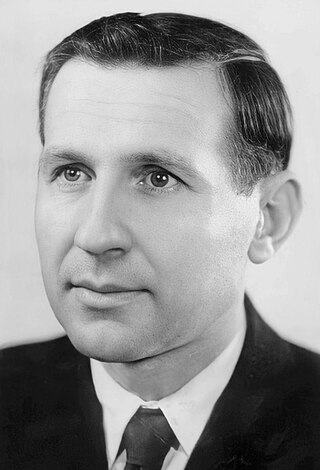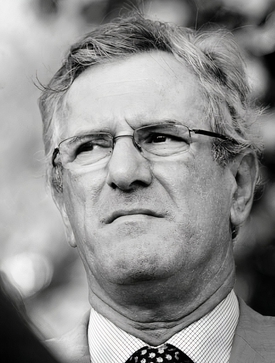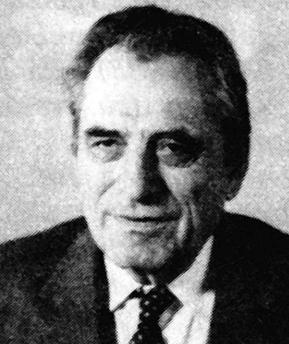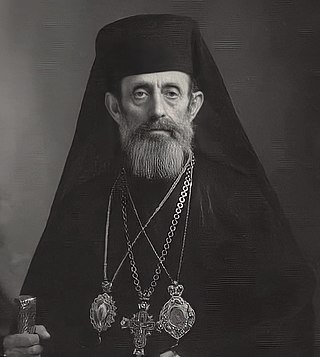
Enver Hoxha was an Albanian Communist politician who was the dictator of Albania from 1944 until his death in 1985. He was First Secretary of the Party of Labour of Albania from 1941 until his death, a member of its Politburo, chairman of the Democratic Front of Albania, and commander-in-chief of the Albanian People's Army. He was the twenty-second prime minister of Albania from 1944 to 1954 and at various times was both foreign minister and defence minister of the country.

In Albania, World War II began with its invasion by Italy in April 1939. Fascist Italy set up Albania as its protectorate or puppet state. The resistance was largely carried out by Communist groups against the Italian and then German occupation in Albania. At first independent, the Communist groups united in the beginning of 1942, which ultimately led to the successful liberation of the country in 1944.

Mehmet Ismail Shehu was an Albanian communist politician who served as the 23rd Prime Minister of Albania from 1954 to 1981.

The Democratic Party of Albania is a conservative political party in Albania. It has been the largest opposition party in the country since 2013.

Gramoz Pashko was an Albanian economist and politician. He co-founded the Democratic Party of Albania in 1990 and later served as rector of the University of New York, Tirana. Pashko was married to Mimoza Ruli, sister of politician Genc Ruli.

Fadil Hoxha was a Yugoslavian ethnic-Albanian communist revolutionary and politician from Kosovo. He was a member of the Communist Party and fought in the Yugoslav Partisans during World War II. After the war, he was the first President of the Executive Council of the Autonomous Region of Kosovo and Metohija (1945–1963) and later member of the Presidency of Yugoslavia (1974–1984).

Sinan Hasani was a Yugoslav novelist, statesman, diplomat and a former President of the Presidency of Yugoslavia, a revolving form of executive leadership which rendered him the President of Yugoslavia at the time as well. He was of Albanian ethnicity.

Qemal Stafa was a founding member of the Albanian Communist Party, and the leader of its youth section.
The Northern Epirus Liberation Front, also called the Northern Epirote Liberation Organization, was an ethnic Greek resistance group that operated in areas of southern Albania during the Italian and German occupation of Albania (1942–1944). The group operated after the withdrawal of the Greek forces from the area, against the invading Italians, Germans and both against the Albanian communist and collaborationist organizations.
Aristotel Samsuri was a former Albanian football player who played for Skënderbeu Korçë between 1930 and 1940, where he won the 1933 National Championship and the golden boot in 1931 after scoring 9 league goals.

Manush Myftiu was an Albanian politician during the country's socialist period. He served in a number of positions, most recently as the deputy prime minister.
Bedri Spahiu was an Albanian politician and Lieutenant-General and one of the most prominent figures of the Albanian Labour Party up to 1956.

Archbishop Damian was the bishop of the Orthodox Autocephalous Church of Albania from April 1966 until February 1967, when the religion was abolished in Albania.

Vojo Kushi was an Albanian and Yugoslav communist guerilla fighter (partisan) and one of the founders of the Communist group based in Shkodër, following the Italian occupation of Albania in April 1939. He was proclaimed a National Hero of Yugoslavia by the Yugoslav communist government on February 12, 1945, and then a Hero of Albania by the Albanian communist government in 1946.

Archbishop Paisi was the Primate of the Orthodox Autocephalous Church of Albania from 1949 to 1966. He succeeded Archbishop Kristofor and was succeeded by Archbishop Damian.

Kadri Hazbiu was an Albanian politician of the Albanian Party of Labour (PPSh).

The Martyrs of Albania were a collective group of 38 individuals killed during the Communist regime in Albania from 1945 until 1974. All were born at various times between 1874 and 1935; the group included Albanians and Italians as well as one German. Each of these individuals, apart from four, were part of the religious life as either priests or religious and served as either missionaries or educators with a great deal spending their educational formation in Italian and Austrian cities.
Albania has been a secular state since its founding in 1912, despite various changes in political systems. During the 20th century after Independence (1912) the democratic, monarchic and later the totalitarian communist regimes followed a systematic secularisation of the nation and the national culture. The Albanian understanding of secularism has strong influences from the French laïcité.

Sheh Ibrahim Haki Karbunara was a shaikh of the Khalwati tariqa, the Mufti of Lushnjë, and a figure in the Albanian National Awakening. He supported Ismail Qemali’s Albanian Declaration of Independence, attended the Congress of Lushnjë, and assisted the June Revolution of 1924.
The Bufi Government better known as the Government of Stability was an interim government formed after the resignation of the previous Nano government due to the aggravated situation in the country after the events of 2 April 1991 where 4 opposition supporters were killed in Shkodër during a anti-communist protest that led to the burning of the Shkodra Labor Party Committee. The Nano government resigned on 4 June 1991, and the next day the then-President Ramiz Alia, began negotiations to form a comprehensive government whose main objective would be to restore stability to the country, from which it took the name "Stability Government". Ylli Bufi was accepted also by the opposition to be appointed as Prime Minister, while one of the most prominent figures of the Democratic Party, such as Gramoz Pashko, was appointed Deputy Prime Minister.
















